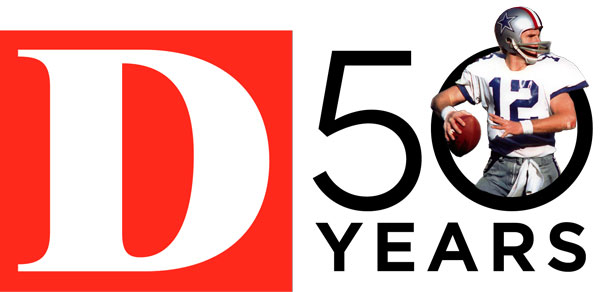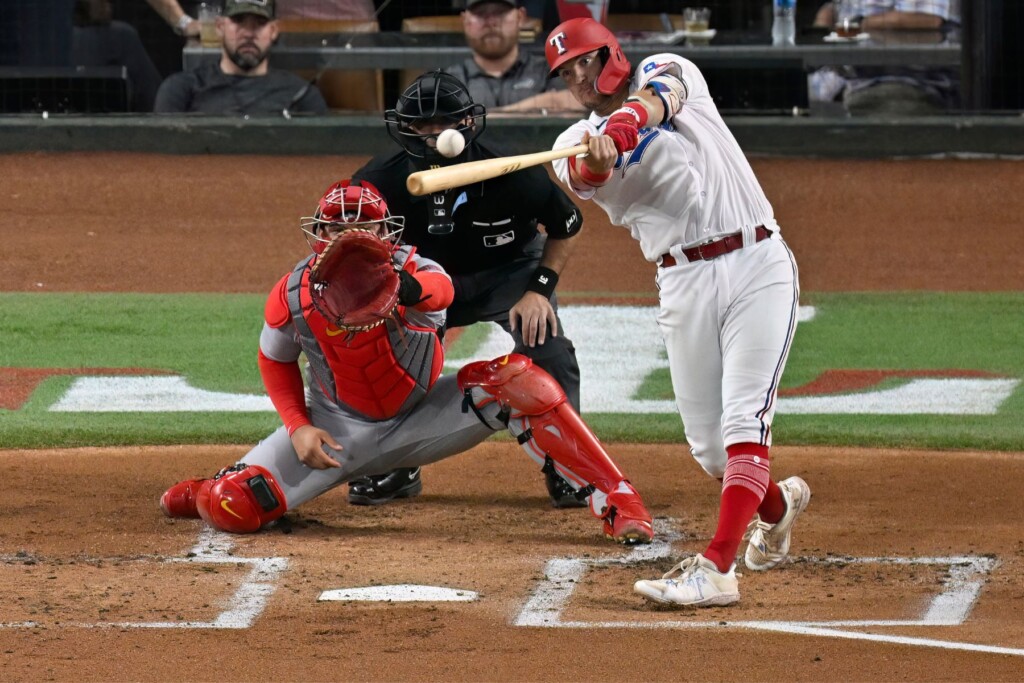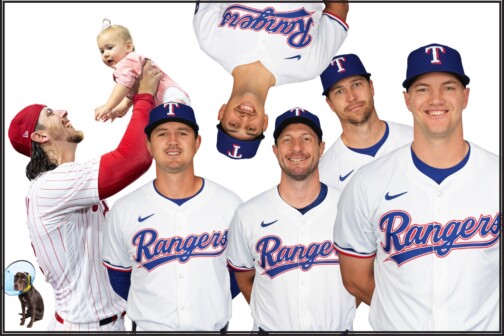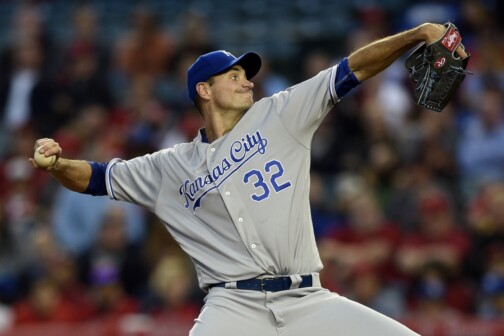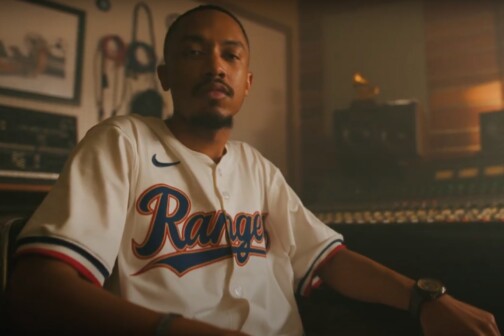Not so long ago, MLB teams played CBA games with their top prospects’ service time. No one admitted that was going on, of course, but a strategic decision to send a prospect down to “work on his defense” for a few weeks at the start of the season enabled teams to hold six full seasons of control after a promotion rather than five. Nowhere was that more obvious than the Cubs and third baseman, Kris Bryant, who came up one day after the date the team would get that extra year of control in a move so brazen that he later filed a grievance with the league. Years later, Bryant, the 2016 NL MVP, fled Chicago for Colorado. While the circumstances were probably bigger than that one transaction, it’s also safe to presume Bryant didn’t forget how his former employer pushed out his payday for a year, either.
The practice has hardly gone away in years since, but we’ve also seen teams like San Diego (Fernando Tatis Jr.), Seattle (Julio Rodriguez), and St. Louis (Jordan Walker) give premium prospects a shot right out of the gate instead of playing the old service-time trick. That isn’t to say it doesn’t still happen, or that smart organizations haven’t found ways to adapt. For instance, if I had a frontline prospect I knew was about ready to step in as an everyday player the following season, I’d call him up toward the end of the year for his debut and acclimation to the big leagues–but make sure his stay fell short of 130 at-bats or 50 innings pitched and lasted less than 60 days.
Which is to say, I’d do exactly what the Rangers did with Josh Jung. It could end up paying off with more than just a really good season on the field for the Rangers’ young third baseman, too. Because Jung, now 25, didn’t exhaust his rookie eligibility. Under the current CBA, it’s no longer just a gimmick or the basis for a marketing deck to get behind a player’s chances to win Rookie of the Year. It now gets the team a chance to collect an extra first-round pick.
This year, Seattle will get an added pick, 29th overall, because Rodriguez was the American League Rookie of the Year in 2022. The Braves would have gotten their own bonus pick for Michael Harris II’s NL award, but he didn’t spend the minimum 172 days on the roster and hadn’t been featured on at least two of the preseason top-100 prospects lists compiled by MLB.com, Baseball America, and ESPN, both required under the new “Prospect Promotion Incentive” (PPI) rule.
For an idea of what a pick in that range could generate, aside from added bonus cap dollars to spread around, Yankees rookie Anthony Volpe went No. 30 in Jung’s draft. Rays ace Shane McClanahan went 31st in 2018. Dodgers phenom righty Bobby Miller went 29th in 2020. The Rangers’ top prospect, outfielder Evan Carter, went 50th that year.
Jung was drafted eighth overall in the summer of 2019, but because of the pandemic, there was no minor-league season in 2020. After completing his first full pro season in 2021 at Frisco and then Round Rock, it appeared as if he would compete with Rodriguez for the 2022 rookie award. The lone question about his bat coming out of Texas Tech was whether his opposite-field, aluminum-bat approach as a Red Raider would translate to prototype third-base power in the pros. (That theoretically gave Texas the leverage to sign him for just $4.4 million in a $5,176,900 slot.) Jung did little to dispel that knock in 2019, going deep only twice in 44 Class A games. But in 2021, he hit 19 bombs in just 78 games and was a better hitter in Triple-A (.348 average) than in Double-A (.308). He became a legitimate candidate to be the Rangers’ Opening Day third baseman in 2022.
The new CBA–and its new PPI rule–was ready to roll in March 2022. Jung wasn’t. He had injured his non-throwing shoulder lifting weights that winter and wasn’t ready to start the season. Instead, Charlie Culberson and Andy Ibanez manned third base for the Rangers.
Ultimately, everything worked out quite well. Jung got back on the field in July, hitting nine home runs and driving in 29 runners in 31 games. He showed enough at the plate that the Rangers decided to get his big-league debut, and the expected challenges that come with it, out of the way on September 9. Jung flashed the tools that made him a consensus top-30 prospect in the game coming into the year, but that month in Arlington came with struggles. The player who piled up more walks than strikeouts in college fanned 39 times and drew only four walks in 98 major-league at-bats. He ended the season with a .204 average and a .235 OBP.
But key numbers in the equation were the ones he didn’t reach: 130 at-bats, or 60 days in the major leagues. That preserved his rookie status for 2023. And in the winter, he was a top-100 prospect according to MLB.com (No. 34), Baseball America (No. 66), and ESPN (No. 38), a combination that made Jung one of 14 players eligible in 2023 to net his team a PPI draft pick in 2024.
As it stands, he’s the only player on that list with a realistic chance of winning AL Rookie of the Year. Only a third of the season has been played, of course, and Volpe or Baltimore’s Gunnar Henderson could turn things around. Or the winner could be a player who wouldn’t qualify his team for the extra pick, like Red Sox outfielder Masataka Yoshida (not because he’ll turn 30 in July, but because international signees aren’t eligible for the draft pick compensation) or Mariners starter Bryce Miller (who didn’t arrive until May 2, a little more than two weeks too late under the PPI rules), though the Rangers dutifully blew his ERA up from 3.00 to 4.46 with another offensive explosion Sunday.
But Jung is arguably the American League’s frontrunner right now. He was the league’s Rookie of the Month in April, and again in May, when he led AL rookies in OPS, slugging, hits, total bases, home runs, and RBI. A blistering 14-game hit streak to finish the month (.434/.492/.793) lifted his season batting average to .295. The player whose pull power was a question coming out of college is among the league leaders in slugging. The Athletic’s Jim Bowden projects him as the AL’s starting third baseman in next month’s All-Star Game.
Jung has hit fifth all year in what has been a historically productive lineup and is making all the plays at third base, establishing himself as a two-way player the way Mark Teixeira did when he arrived in Texas in 2003. Teixeira hit .259 with 26 home runs and a .811 OPS that year, managing only a fifth-place finish in the AL Rookie of the Year vote (behind the largely forgettable foursome of Angel Berroa, Hideki Matsui, Rocco Baldelli, and Jody Gerut). Jung is on pace to outhit, out-homer, and out-OPS Teixeira and the other four.
If Jung were to win the award, he will have achieved the first significant milestone of his career. For his franchise, the reward would be an extra first-round pick next season, when, for the first time since 2017, it isn’t going to have the kind of draft-day power that comes with picking in the top half of the first round. Two months into the 2023 season, a whole lot has gone right for the Rangers. They may already be on their way to having a pretty huge thing go right for 2024 as well.
Get the ItList Newsletter
Author

